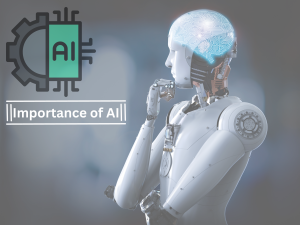In today’s digital age, coding is no longer just for computer scientists—it’s a vital skill for everyone, including children. As we step into 2025, coding has become a cornerstone of modern education, and teaching kids how to code is more essential than ever. In this blog, we will explore why coding is a critical part of the curriculum for kids and how it benefits their cognitive, academic, and personal growth.
Why Coding Matters in 2025
- The Future of Work Is Tech-Driven The workforce of tomorrow will be powered by technology, and coding is the language of that technology. From AI to robotics, many industries now rely on software and digital solutions. By learning to code, children gain skills that will make them adaptable and ready for a tech-driven job market.
- Coding Teaches Problem-Solving Skills Coding is all about solving problems. When children write code, they break down complex challenges into smaller, more manageable tasks. This cultivates critical thinking and teaches students how to approach challenges with a solution-oriented mindset—skills that are valuable not only in the classroom but also in real-world situations.
- Boosting Creativity and Innovation Coding encourages kids to think creatively and innovate. With programming, children can create their own websites, apps, and even games. This creative process empowers them to bring their ideas to life, fostering confidence and encouraging them to think outside the box.
- Improved Mathematics and Logical Thinking Learning to code naturally enhances a child’s understanding of math and logic. Programming concepts like variables, loops, and algorithms align closely with mathematical principles, helping students improve their math skills while having fun.
- Coding Helps Develop Collaboration and Communication Skills While coding might seem like a solitary activity, it often involves collaboration. Many coding projects require teamwork, especially in robotics and app development. Kids learn to communicate effectively with peers, work together to troubleshoot issues, and develop collaborative problem-solving strategies.
How Coding Fits into the Modern Curriculum
As we move towards a more technology-driven future, coding should be a core component of the curriculum. Schools that integrate coding into their programs provide students with the necessary tools to thrive in the 21st century. Robotics programs, coding boot camps, and after-school coding clubs are excellent ways to engage kids with coding from an early age.
Conclusion: Preparing Kids for the Future
By teaching kids to code, we’re not just giving them the ability to work with technology—we’re equipping them with the skills needed to thrive in an ever-changing world. In 2025, coding will continue to be an essential skill, opening doors to endless opportunities and fostering creativity, critical thinking, and problem-solving. As educators and parents, it’s crucial to support kids in learning to code, ensuring they are prepared for whatever the future holds.



